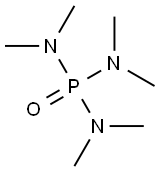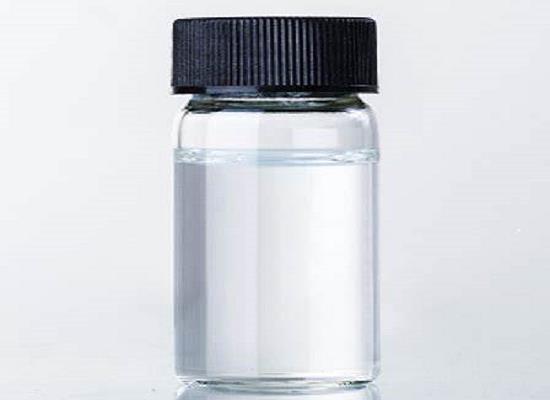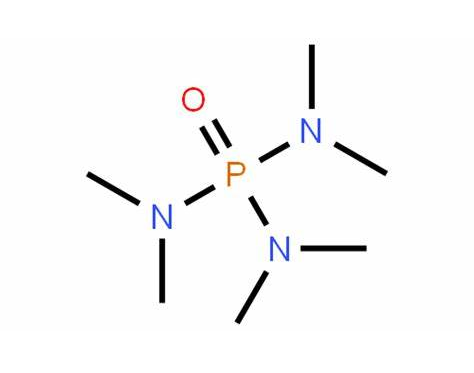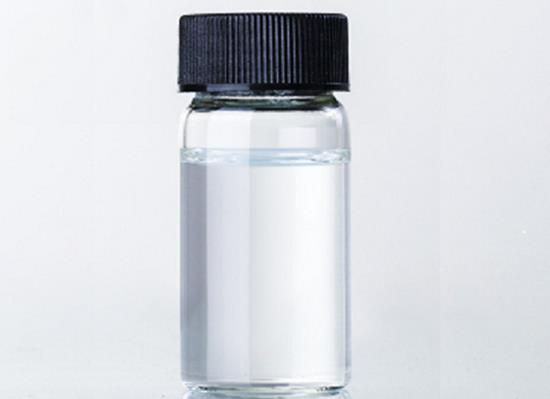Hexamethylphosphoramide-Hazard and Toxicity
Description
Hexamethylphosphoramide is made from the reaction of dimethylamine and phosphorus oxychloride. It has a molecular weight of 179.2, appearing as colorless or light yellow transparent liquid with slightly astringent taste. It has a relative density of 1.0253~1.0257 (20 ℃), refractive index of 1.4582~1.4589 (20 °C), the freezing point of 2~7 °C and the boiling point of 116~117 °C (1480Pa). It is soluble in polar and non-polar solvents.
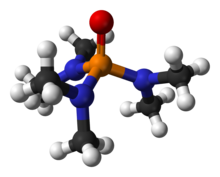
It is also miscible with the commonly used plasticizers such as dioctyl phthalate, dioctyl sebacate, and triphenyl phosphite in any proportion. It has a similar toxicity to phosphate. Avoid contact with skin. Its containers should be tightly sealed to prevent leakage and water absorption to be deteriorated Hexamethylphosphoramide is the light stabilizer of the PVC, enabling an excellent anti-aging properties of outdoor products with excellent weather resistance, therefore being known as highly-efficient weathering agent of PVC.
Toxicity Data
LD50 oral (rat) 2525 mg/kg
LD50 skin (rabbit) 2600 mg/kg
Major Hazards
Possible human carcinogen (OSHA "select carcinogen"). The acute toxicity of hexamethylphosphoramide is low. HMPA can cause irritation upon contact with the skin and eyes. Hexamethylphosphoramide has been found to cause cancer in laboratory animals exposed by inhalation and meets the criteria for classification as an OSHA "select carcinogen." Chronic exposure to HMPA can cause damage to the lungs and kidneys. Reproductive effects in male animals treated with hexamethylphosphoramide have been observed. HMPA should be regarded as a substance with poor warning properties.
Toxicity
The acute toxicity of hexamethylphosphoramide is low. HMPA can cause irritation upon contact with the skin and eyes. Hexamethylphosphoramide has been found to cause cancer in laboratory animals exposed by inhalation and meets the criteria for classification as an OSHA "select carcinogen." Chronic exposure to HMPA can cause damage to the lungs and kidneys. Reproductive effects in male animals treated with hexamethylphosphoramide have been observed. HMPA should be regarded as a substance with poor warning properties.
Flammability and Explosibility
Combustible liquid. Its decomposition at high temperatures or in a fire can produce phosphine, phosphorus oxides, and oxides of nitrogen, which are extremely toxic. Carbon dioxide or dry chemical extinguishers should be used for HMPA fires.
Reactivity and Incompatibility
Incompatible with strong oxidizing agents and strong acids.
Storage and Handling
In particular, this compound should be handled only in a fume hood, using appropriate impermeable gloves and splash goggles to prevent skin and eye contact. Containers of this substance should be stored in secondary containers.
Accidents
In the event of skin contact, immediately wash with soap and water and remove contaminated clothing. In case of eye contact, promptly wash with copious amounts of water for 15 min (lifting upper and lower lids occasionally) and obtain medical attention. If hexamethylphosphoramide is ingested, obtain medical attention immediately.
If large amounts of this compound are inhaled, move the person to fresh air and seek medical attention at once. In the event of a spill, soak up the hexamethylphosphoramide with a spill pillow or absorbent material, place in an appropriate container, and dispose of properly. Respiratory protection may be necessary in the event of a large spill or release in a confined area.
Disposal
Excess hexamethylphosphoramide and waste material containing this substance should be placed in an appropriate container, clearly labeled, and handled according to your institution's waste disposal guidelines.
You may like
Related articles And Qustion
Lastest Price from Hexamethylphosphoramide manufacturers

US $1.00/KG2025-04-30
- CAS:
- 680-31-9
- Min. Order:
- 1KG
- Purity:
- 99%
- Supply Ability:
- 20T
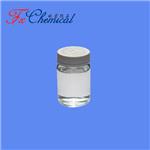
US $0.00/KG2025-04-21
- CAS:
- 680-31-9
- Min. Order:
- 25KG
- Purity:
- 98%min
- Supply Ability:
- 30tons/month
